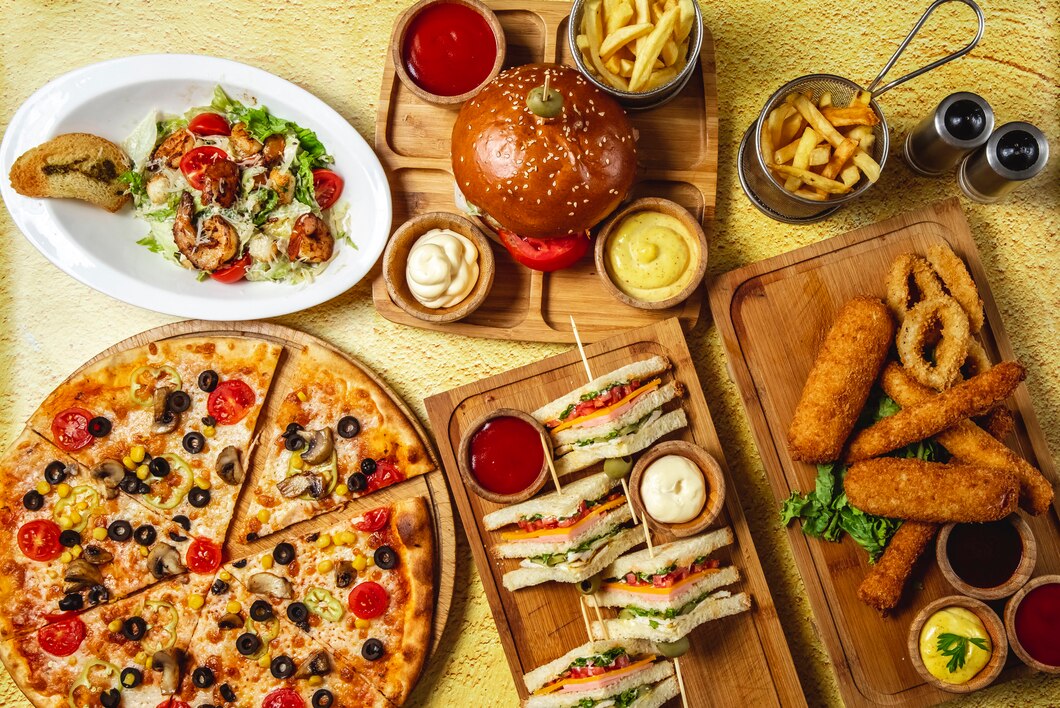Maintaining a robust immune system is crucial for overall health, especially in times when our bodies need to fight off infections and illnesses. While many focus on foods that boost immunity, it’s equally important to be aware of those that can weaken your body’s defenses. Here’s a list of 20 foods that South Africans should consider limiting or avoiding to keep their immune systems strong.
1. Processed Meats
- Why Avoid: High in saturated fats and preservatives like nitrates, processed meats can cause inflammation and suppress immune function over time.
- Examples: Polony, sausages, and bacon.
2. Sugary Drinks
- Why Avoid: High sugar intake can impair the immune system by reducing the ability of white blood cells to fight bacteria.
- Examples: Sodas, energy drinks, and sweetened iced teas.
3. Refined Carbohydrates
- Why Avoid: Foods like white bread, pastries, and sugary cereals are low in nutrients and can lead to blood sugar spikes, which may negatively impact immunity.
- Examples: White bread, white rice, and sugary cereals.
4. Deep-Fried Foods
- Why Avoid: Rich in trans fats, these foods can trigger inflammation and reduce the body’s ability to fight off infections.
- Examples: Vetkoek, slap chips, and fried chicken.
5. Excessive Alcohol
- Why Avoid: Alcohol can disrupt the immune system by interfering with the gut’s ability to produce the necessary immune cells.
- Examples: Overconsumption of beer, wine, or spirits.
6. Artificial Sweeteners
- Why Avoid: Some artificial sweeteners can negatively affect gut bacteria, which play a critical role in immune health.
- Examples: Aspartame in diet sodas, saccharin in low-calorie snacks.
7. High-Sodium Foods
- Why Avoid: Excess salt can lead to high blood pressure and may weaken the immune system by causing inflammation.
- Examples: Potato crisps, biltong with added salt, and canned soups.
8. Highly Processed Snacks
- Why Avoid: These are often loaded with unhealthy fats, sugars, and preservatives, which can all compromise immune health.
- Examples: Chips, biscuits, and instant noodles.
9. Sugary Breakfast Cereals
- Why Avoid: Often high in added sugars and low in nutrients, these cereals can contribute to blood sugar spikes and inflammation.
- Examples: Corn flakes with added sugar, chocolate-flavored cereals.
10. Margarine
- Why Avoid: Often contains trans fats, which can increase inflammation and negatively impact the immune system.
- Examples: Certain spreads and baking margarine.
11. High-Fructose Corn Syrup
- Why Avoid: This sweetener, found in many processed foods, can increase the risk of obesity and chronic diseases, weakening immune function.
- Examples: Sweetened yogurts, commercial fruit juices, and sauces.
12. Packaged Fruit Juices
- Why Avoid: Often loaded with added sugars and stripped of fiber, they can spike blood sugar and provide little nutritional value.
- Examples: Commercially packaged orange juice, apple juice, and fruit cocktails.
13. Pastries and Cakes
- Why Avoid: High in sugars and unhealthy fats, these treats can cause inflammation and increase the risk of infections.
- Examples: Doughnuts, muffins, and scones.
14. Instant Noodles
- Why Avoid: Low in nutrients and high in sodium and unhealthy fats, these can contribute to poor immune health.
- Examples: 2-minute noodles, ramen packets.
15. Commercial Salad Dressings
- Why Avoid: Often high in sugars, unhealthy fats, and preservatives, these can negate the benefits of an otherwise healthy salad.
- Examples: Creamy salad dressings, low-fat dressings with added sugars.
16. Canned Vegetables with Added Salt
- Why Avoid: While vegetables are healthy, those canned with high levels of salt can contribute to inflammation and poor immune health.
- Examples: Canned peas, corn, and green beans with added salt.
17. Ice Cream
- Why Avoid: High in sugar and unhealthy fats, ice cream can lead to inflammation and decrease immune response.
- Examples: Store-bought ice cream, soft-serve.
18. Processed Cheese
- Why Avoid: Contains high levels of sodium and unhealthy fats that can impair immune function.
- Examples: Cheese slices, cheese spreads.
19. Condensed Milk
- Why Avoid: Extremely high in sugar, condensed milk can cause blood sugar spikes and weaken the immune system.
- Examples: Used in desserts like peppermint crisp tart, added to coffee.
20. Flavored Yogurts
- Why Avoid: Often packed with sugars and artificial flavors, which can decrease the beneficial effects of probiotics in yogurt.
- Examples: Fruit-flavored yogurts, dessert-style yogurts.
For a stronger immune system, it’s essential to focus on whole, unprocessed foods that are rich in nutrients. By avoiding or reducing the intake of the foods listed above, you can support your immune health and overall well-being. Instead, opt for fresh fruits and vegetables, whole grains, lean proteins, and healthy fats, which will provide the necessary nutrients to keep your immune system functioning optimally.








